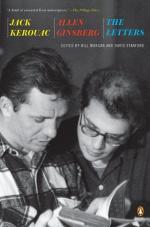|
This section contains 8,597 words (approx. 29 pages at 300 words per page) |

|
SOURCE: Spiegelman, Willard. “The Moral Imperative in Anthony Hecht, Allen Ginsberg, and Robert Pinsky.” In The Didactic Muse: Scenes of Instruction in Contemporary American Poetry, pp. 56-109. Princeton: Princeton University Press, 1989.
In the following excerpt, Spiegelman finds parallels between the work of Ginsberg, Anthony Hecht, and Robert Pinsky.
Twenty years ago, Susan Sontag suggested “Jewish moral seriousness and homosexual aestheticism and irony” as the primary forces in the modern sensibility.1 Gay poets have no monopoly on irony, as the cases of Howard Nemerov, Richard Wilbur, Anthony Hecht and John Hollander, to cite a few, prove. Nemerov and James Merrill both inherited the mantle of W. H. Auden, although only Merrill shares Auden's sexual preference. Nor do American Jews have, ipso facto, a greater share of moral seriousness (consider Robert Bly, Amy Clampitt, Robert Hass, and Robert Lowell). And yet Sontag's theory has a curious validity for contemporary poetry...
|
This section contains 8,597 words (approx. 29 pages at 300 words per page) |

|


